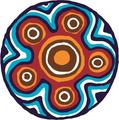Term 3 Overviews Cultural Inculsion

| Prep | In Term 3 preps will continue their exploration of Indigenous stories and cultural expression. They will engage with the stories through singing, writing, drawing, acting and art and craft. There is a focus on respect for and appreciation of the range of First Nations peoples and cultures around Australia. |
| Grade 1 | In Term 3, grade 1 will continue their exploration of Indigenous animals and plants, their habitats, interrelationships and also the relationships of Indigenous Australians to native plants and animals. Towards the end of the term they will develop posters to showcase what they have learnt. There is a focus on respect for and appreciation of the range of First Nations peoples and cultures around Australia. |
| Grade 2 | In Term 3, grade 2 students will continue to learn about Indigenous languages, cultural expression and bush tucker. This will lead into an exploration of symbols used in artworks. Students will have opportunities to develop their own art works and use the symbols in other creative ways. There is a focus on respect for and appreciation of the range of First Nations peoples and cultures around Australia. |
| Grade 3 | In Term 3, students learn about Indigenous and Western seasons and the different ways of telling what season it is. Students will develop a deeper understanding of seasonal time, by learning about the context of seasons and stories about seasons and appreciate the importance of various methods of working out what season it is. Grade 3 students will recognise that Indigenous seasons define seasonal time in a more flexible way than Western seasons do; the change in season is marked by the progression of the natural environment and not a specific date and discover the cyclical rather than sequential understanding of time that’s present in First Nations’ cultures.
|
| Grade 4 | Students in Grade 4 will be comparing and contrasting early colonial records of Indigenous language, examining the historical context of these primary sources and what they tell us about early interactions between Europeans and Aboriginal and Torres Strait Islander Peoples. They will explore the ongoing legacies of colonisation on language, listen to the experiences of First Nations people, and identify ways in which they, their school and their broader community might play a role in respecting, understanding and promoting the preservation of Indigenous languages and cultures. |
| Grade 5 | In Term 3, Grade 5 are considering the impacts of colonisation on Indigenous Australians. They will look at stories from around the nation that include life pre-colonisation, impacts of colonisation and then post-colonial responses in a range of locations and situations. Students will express their learning through a range of projects including artworks, slide presentations, posters and discussions. There is a focus on respect for and appreciation of the range of First Nations peoples and cultures around Australia. |
| Grade 6 | Students will investigate how First Nations Peoples use knowledge of the structural features of certain species of animals and plants in everyday life. They will reflect on Australia’s unique plant and animal diversity and discover the ways First Nations Peoples continue to use and manage plants and animals through ancestral knowledge systems and practices. Students will evaluate how these expert knowledge systems have been formed over thousands of years through cultural traditions and synchronised relationships between people and Country. |
